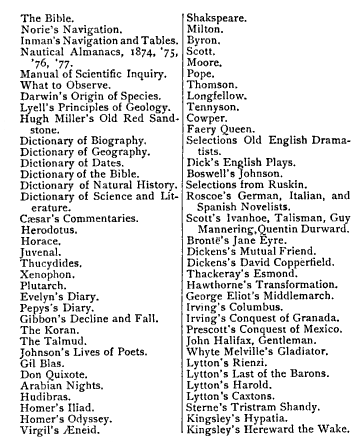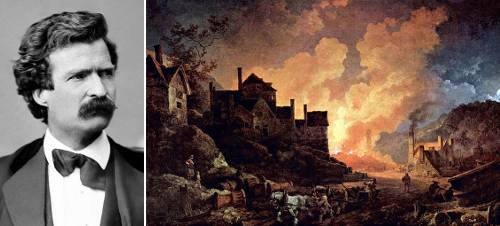In 1886 the Pall Mall Gazette asked Henry Morton Stanley what books he had taken with him across Africa. He responded:
“I carried a great many — three loads, or about 180 lb. weight; but as my men lessened in numbers, stricken by famine, fighting, and sickness, one by one they were reluctantly thrown away, until finally, when less than 300 miles from the Atlantic, I possessed only the Bible, Shakspeare, Carlyle’s ‘Sartor Resartus,’ Norie’s Navigation, and Nautical Almanac for 1877. Poor Shakspeare was afterwards burned by demand of the foolish people of Zinga. At Bonea Carlyle and Norie and Nautical Almanac were pitched away, and I had only the old Bible left. But the following was my list of books on setting out with a tidy battalion of men:–

“After the march, unless there was any fighting, or observations for position to take, one of these books was sure to be taken up and occupied the afternoon and then evening until 9 P.M., when what with fatigue, reading, and a necessity to be up at 5 A.M., I would soon be asleep. Many of these books are still in Africa, along the line of march, and will be kept as fetishes until some African antiquarian will pick some of them up a century hence, and wonder how on earth ‘Jane Eyre,’ printed in 1870, came to be in Ituru, or Thackeray’s ‘Esmond,’ Dickens and Scott, came to be preserved among the lubari of Gambaragara.”



